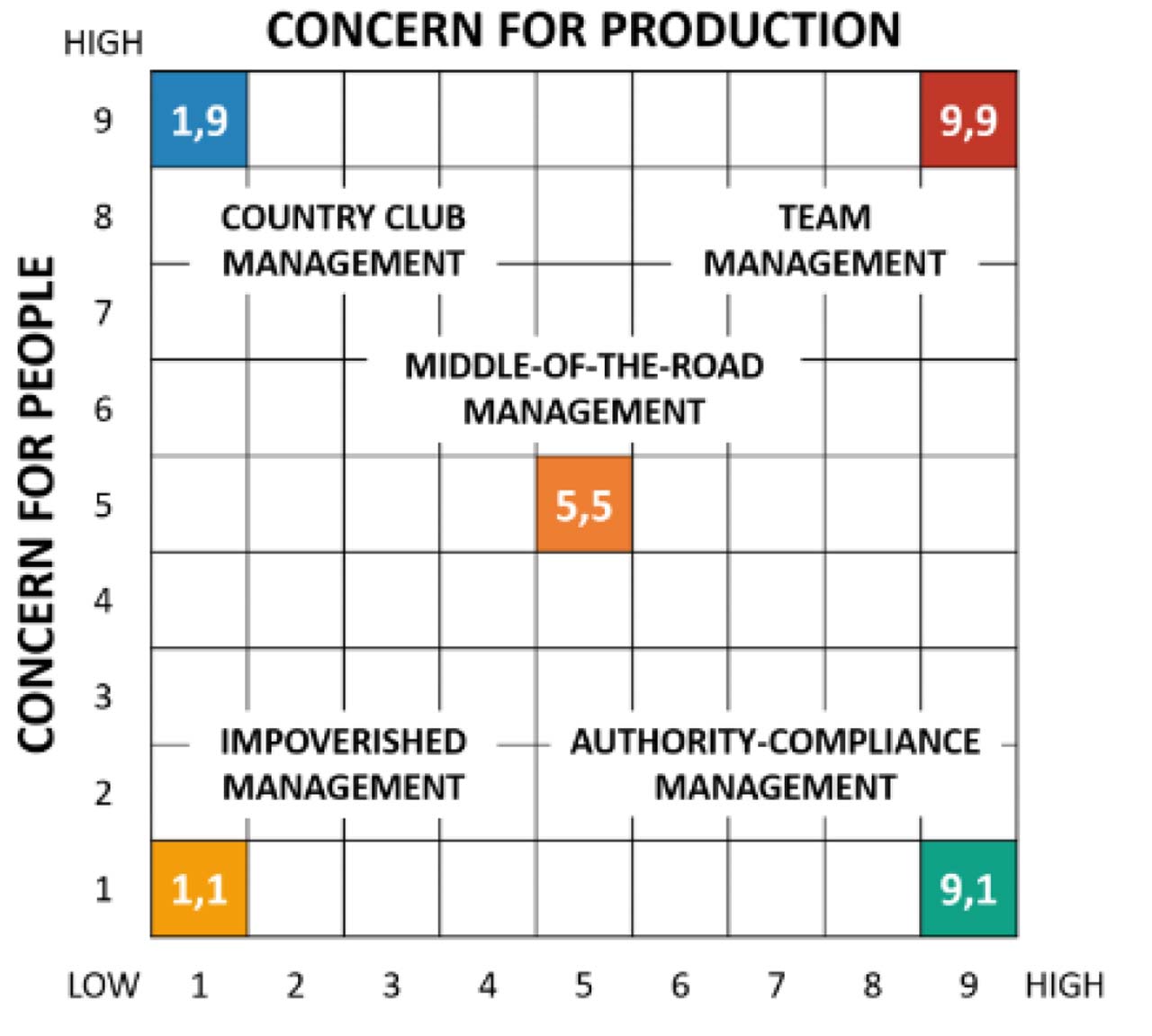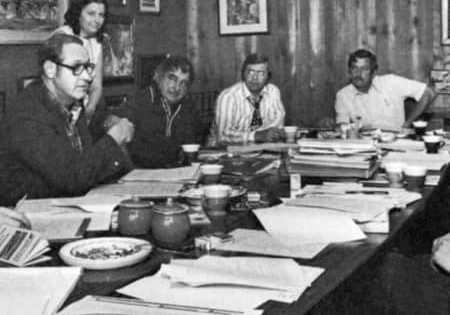What is yours?
In my professional career, I have had the opportunity to work alongside very strong leaders. These leaders possessed a natural ability to accomplish tasks, while still maintaining a positive relationship with the people they were leading. I have also worked alongside very poor leaders, who should never have been placed in a position of leadership. These individuals placed a higher degree of priority on accomplishing tasks over concern for the people they were leading. With this type of leadership style, people are motivated to accomplish tasks out of fear, leading to high employee turnover and short-term performance results.
The ability to balance concern for people and tasks requires a high degree of disciplined leadership skill. This article will introduce five leadership styles that were developed by Robert R. Blake and Jane Srygley Mouton in the 1960s. Blake and Mouton worked together at the psychology department of the University of Texas at Austin during the 1950s and 1960s. They are known primarily for the development of the “Managerial Grid” as a framework for understanding managerial behavior. Today, the Blake and Mouton Managerial Grid continues to be utilized as a tool to develop leaders.

The ability to balance concern for people and tasks requires a high degree of disciplined leadership skill.
The key to understanding how the managerial grid can help leaders identify their natural leadership style is to plot where their scores are on the y-axis, the level of concern for people, and the x-axis, the concern for production. A quiz to determine scores in each area can be found at Blake and Mouton Leadership Styles Questionnaire or by emailing [email protected].
To help you improve your leadership skills, it is important to understand the differences among the five leadership profiles on the Blake and Mouton Managerial Grid.
Impoverished Management results from a leader with a “chip on their shoulder,” the type of manager everyone warns people to avoid. This person is a disgruntled leader who will not hesitate to openly complain about what makes them unhappy at work. The work environment is filled with negative energy, and this manager only gets results by utilizing negative stimuli to achieve results. If you have an Impoverished Manager in your organization, get rid of them FAST.
Country Club Management is when the leader is overly concerned about the team’s level of engagement, happiness and well-being, but there is very little focus on accomplishing tasks. While this type of leader creates a happy work environment, the business will ultimately suffer when the work is not done. The Country Club leader believes if people are happy, they will naturally accomplish tasks. This is not always true.
Middle-of-the-Road Management aims to achieve status quo results. There is not a high priority for accomplishing tasks or concern for people. The business results are average, without exceeding any expectations. Unless these types of leaders are pushed to achieve bigger results, they will keep the organization at the same level of performance indefinitely.
Authority-Compliance Management is all about “getting things done,” even if it means upsetting people to make it happen. There is no concern for people. This leadership style will drive people to leave the organization. Results will be short term, turnover will be “through the roof,” and business profits will suffer.
The Team Management quadrant on the managerial grid is the ideal leadership style, and the one style that strikes an equal balance of concern for tasks and people. These leaders achieve the best results. The desired business results are achieved, while also retaining and engaging people. This leader is the most valued asset of the organization.
The Blake and Mouton Manager Grid is a very useful tool to help in developing a leadership style. If you find yourself in one of the less-than-desired quadrants, it is not too late to change. It is very possible to transition from the 1.1 Quadrant toward the 9.9 Quadrant on the leadership grid. To move toward this goal, I encourage you to take the managerial quiz, so you can develop self-awareness about your leadership style. Invest in additional leadership training resources to help hone and develop skillful leadership traits. Your leadership style matters. It matters to the people you lead. It matters to the business that hired you. It matters to the future of your personal success.
Get more of Elevator World. Sign up for our free e-newsletter.










